Who was Cato the Younger, and why does his legacy endure? Cato the Younger, a staunch defender of the Roman Republic, stands as an emblem of Stoic philosophy and republican values against the tide of autocracy. Through his fierce opposition to corruption and the rise of Julius Caesar, he shaped the fabric of Roman politics and left an indelible mark on history. This article delves into the life of Cato the Younger, exploring his early education in Stoicism, his political struggles against the growing powers of Caesar, and how his death became a stoic response to the demise of the Republic he sought to protect.
Key Takeaways
- Cato the Younger was a staunch defender of Roman Republic values, with his political and personal life heavily influenced by Stoic philosophy, dedicated to opposing corruption and promoting justice.
- Throughout his political career, Cato consistently opposed Julius Caesar’s efforts to concentrate power, perceiving such moves as threats to the Republic, and his rivalry with Caesar significantly contributed to the political deadlock in Rome.
- The legacy of Cato the Younger is marked by his tireless commitment to the Roman Republic and Stoic philosophy, with his principled life and suicide in Utica serving as symbols of opposition to autocracy and commitment to his beliefs.
Early Life and Education
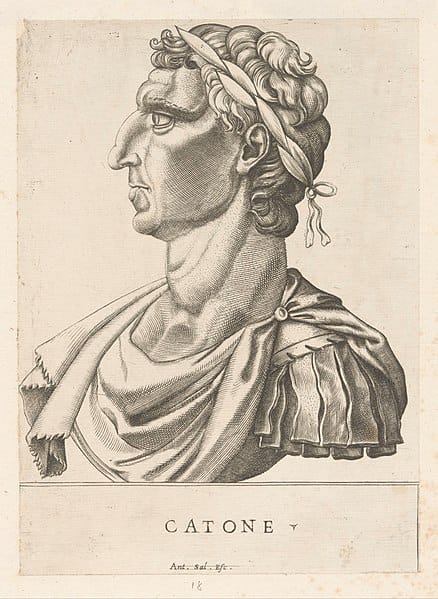
Born in 95 BCE, Cato the Younger, also known as Cato Minor, was inducted into a life of gravity at a young age. Orphaned early, the younger Cato was raised by his uncle, Marcus Livius Drusus, forging a strong bond with him and his half-siblings, Gnaeus Servilius Caepio and Servilia. His character was significantly shaped during this period, as his formative years and education had a substantial impact on his later life and values. His upbringing instilled in him a deep commitment to Stoic philosophy and a profound embodiment of Roman customs, which would later guide his political career.
At the tender age of 16, Cato, also known as Cato Uticensis, was inducted into the prestigious priestly college, the Quindecimviri Sacris Faciundis. Being tasked with upholding Rome’s religious traditions and practices, this denoted a meaningful milestone in his life. Among his responsibilities were safeguarding the sacred Sibylline Books and interpreting the divine will, an early testament to the dedication and sternness that would hallmark his life. For those interested in learning more about Cato Uticensis, Oxford University Press offers a wealth of resources on this historical figure.
Family Lineage
Cato the Younger traced his lineage back to Elder Cato, a revered figure in Roman history whose teachings had a profound influence on his upbringing. The lessons instilled in him a strong opposition to Greek culture and a commitment to traditional Roman behavior and morals. This influence was so profound that Cato, like his great-grandfather, would later take his own life. His suicide, a stoic conclusion to Cato’s life, was seen as a final act of defiance against a society governed by Caesar.
The younger Cato’s family held a prominent political position as leaders of the optimate or Republican party. His parents, Marcus Porcius Cato and Livia, and his siblings, Gnaeus Servilius Caepio and Servilia, were all significant figures in Roman society. This political backdrop greatly influenced Cato’s early life and future political career, shaping him into the renowned figure known as Marcus Porcius Cato Uticensis.
Education and Philosophical Training
In his pursuit of knowledge, Catothe Younger was tutored by a variety of philosophers. He studied Stoicism under Antipater of Tyre, Epicureanism under Philostratus, and was also instructed in Peripatetism. His education had a profound impact on his life and political career. Cato the Younger dedication to Stoicism fostered in him self-discipline, a modest way of living, and a commitment to virtue and reason. These principles were fundamental to his personal behavior and greatly influenced his political beliefs, earning him a reputation for his unwavering opposition to corruption and his vigorous advocacy for the Roman Republic and its laws.
Cato the Younger stood firmly for an austere lifestyle characterized by self-discipline, austerity, and a preference for simplicity. His dedication to justice was closely linked to his Stoic beliefs, motivating him to oppose corruption and exemplify the ideals of justice and virtue in his ethical behavior and political engagements, including his efforts to destroy Caesar’s ambitions.
Political Ascent
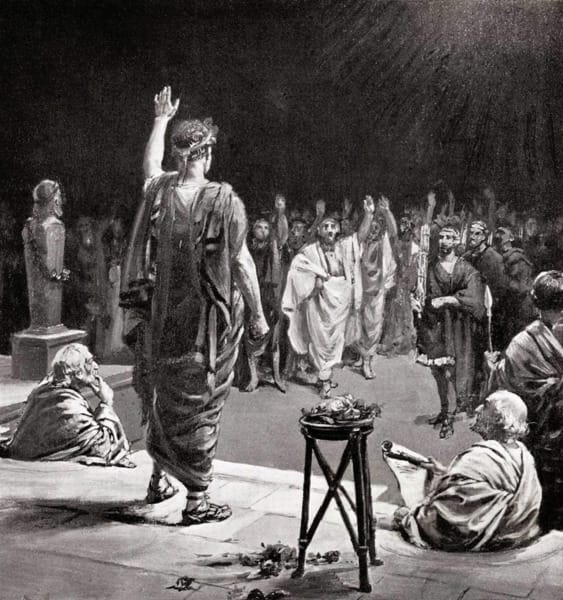
His unwavering dedication to Stoic philosophy and the Roman Republic characterized Cato the Younger political career. Influencing his moral principles, political beliefs, and personal behavior, his upbringing, education, and observance of Stoic philosophy played a significant role in his political ascent. The young man served in various capacities such as quaestor, military tribune, and later as Tribune of the Plebs, each role further cementing his reputation as a principled and capable leader.
As a quaestor, Cato the Younger tackled the rampant corruption in the state treasury, initiating legal proceedings against corrupt officials and earning a reputation for honesty and integrity. His tenure as a military tribune in the consular army showcased his adherence to Stoic principles and his adept leadership abilities, earning him esteem among both Roman military and political communities.
Cato’s term as Tribune of the Plebs further solidified his political standing. He championed a bill for grain subsidies for the common people and violently opposed Pompey’s request for land for his veterans, actions that underlined his commitment to the Republic and its traditions.
His political career, however, was not without conflict. A significant portion of his political life was marked by his opposition to Julius Caesar, a rivalry that would ultimately lead to a lengthy conflict and the eventual collapse of the Roman Republic.
Quaestorship
His election as a quaestor in 63 BC marked the earnest beginning of Cato’s political career. This position, one of great responsibility and prestige, involved managing the public treasury, administering public properties, and overseeing the state treasury. As quaestor, Cato the Younger was responsible for collecting and allocating funds, managing tax collection, and overseeing the military treasury.
During his tenure, Cato spent his time diligently working to improve the state’s financial integrity. He:
- Discovered rampant corruption in the state treasury
- Initiated legal proceedings against former quaestors who had dishonestly appropriated funds
- Dismissed corrupt clerks
His commitment to integrity and the appropriate management of state finances established his reputation as an honest and dedicated public servant.
Military Tribune and Service
His tenure as a military tribune marked another defining period in his political career. During this time, Cato was responsible for:
- Handling administrative and logistics duties
- Ensuring discipline and welfare of the troops
- Potentially leading a section of a legion under a consul or a legate
Throughout his military service, Cato demonstrated his leadership skills and adherence to Stoic principles when Cato the Younger arrived.
In his capacity as a military tribune, Cato visited Asia Minor and Galatia to observe conditions where unrest had recently occurred. His visits to these areas, as well as to Pompeii, were indicative of his dedication to ensuring the stability and welfare of the Roman Republic.
Tribune of the Plebs
As Tribune of the Plebs, Cato played a key role in defending the rights and interests of the plebeians. He used his authority to veto the actions of other magistrates and put forward legislation that was in the interest of the common people.
One of his most notable actions during this period was his opposition to Pompey’s plea for land for his veterans as a means of settlement following the Mithridatic Wars. Cato the Younger saw this as a potential empowerment of Pompey and his faction and, hence, a threat to the Republic. His denial of this request led to:
- the formation of an alliance between Pompey, Crassus, and Caesar
- dissatisfaction among Pompey’s veterans
- potentially adding to the political instability in Rome.
Conflicts with Julius Caesar
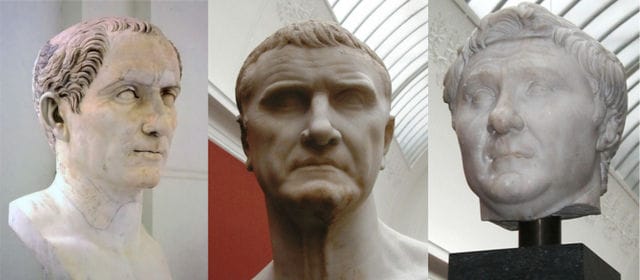
His political career was distinctly characterized by his staunch opposition to Julius Caesar. He perceived Caesar as a threat to the Roman Republic and was vocal in his criticism of Caesar’s ambition and policies, which he saw leading inevitably to tyranny. This resistance was clearly evidenced during Caesar’s consulship and the formation of the First Triumvirate, where Cato’s staunch opposition to Caesar’s policies played a significant role in the political deadlock within the Roman Republic.
During Caesar’s consulship, Cato the Younger famously filibustered Caesar’s bill for the distribution of public lands to the poor. Despite his efforts, the bill eventually passed, but not without adding requirements for senators to swear to uphold the law or face punishment. This period was marked by a tense political atmosphere, with Rome transitioning from a republic to an empire and the increasing influence of the aristocracy.
The formation of the First Triumvirate, an alliance between Caesar, Pompey, and Crassus, further heightened Cato’s opposition to Caesar. He saw the alliance as a potential threat to the Republic and actively resisted it. His opposition, however, contributed to a political deadlock within the Republic, leading to the eventual civil war.
Caesar’s Consulship
Julius Caesar’s consulship marked a significant shift in Roman politics. His first act as consul was the passing of an agrarian law, which involved the distribution of land among the urban poor and Pompey’s soldiers. Caesar’s bill was met with fierce opposition from Cato, who attempted to filibuster it. This was a clear reflection of Cato’s commitment to uphold the principles and traditions of the Republic and his defiance of Caesar’s power and influence.
Despite Cato’s efforts, the bill eventually passed. However, the political atmosphere during Caesar’s consulship was one of change and tension. With Rome transitioning from a republic to an empire, the increasing influence of the aristocracy, and the complexities of governing a significant city-state, Cato the Younger objected, and his steadfast opposition to Caesar’s policies only added to the political tumult.

The First Triumvirate
The formation of the First Triumvirate marked a significant shift in the political landscape of Ancient Rome, specifically during the Roman Republic. This unofficial political coalition, comprising Gnaeus Pompeius Magnus (Pompey), Julius Caesar, and Marcus Licinius Crassus, represented a significant threat to the traditional structure and values of the Republic.
Cato the Younger vehemently opposed this alliance, viewing it as a potential threat to the established Republican principles and the overall stability of the state. His staunch opposition, however, resulted in a political deadlock within the Roman Republic. This deadlock facilitated the formation of the alliance between Pompey, Crassus, and Caesar, ultimately causing substantial tension that undermined the strength of the state and anticipated the forthcoming civil conflict.
Civil War and Final Years
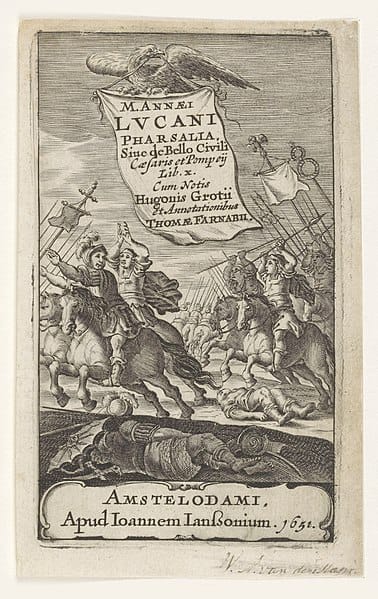
The final phase of his political career was marked by his involvement in the civil war between Caesar and Pompey. Despite his alignment with Pompey, Cato the Younger remained steadfast in his opposition to Caesar’s pursuit of power. Following Pompey’s defeat at the Battle of Pharsalus, Cato fled to Africa, leading a small remnant of troops to continue resisting Caesar’s forces. His unwavering dedication to the Republic and the cause he fervently believed in was evident in his actions during this period.
In Utica, Cato secluded himself, strengthening the city’s defenses and making preparations for the inevitable confrontation with Caesar’s forces. Confronted with the inevitability of Caesar’s triumph and refusing to exist in a society governed by Caesar, Cato opted to end his own life. His manner of death was regarded as a stoic conclusion in line with the principles he had adhered to throughout his life.
Pharsalus and Flight to Africa
The Battle of Pharsalus, fought in 48 BC, was a pivotal moment in the civil war between Caesar and Pompey. It was here that Caesar won, leading to significant casualties and the capture of numerous soldiers in Pompey’s army. Cato’s involvement in the battle is not explicitly documented; however, his strategic opposition to Pompey’s pursuit of Caesar suggests a divergence of opinion.
Following the battle, Cato the Younger made the decision to:
- flee to Africa with a small group of soldiers
- recognize the inevitability of further conflict with Caesar’s forces
- seek to reinforce Utica’s defenses
- prepare the city for the impending confrontation.
Suicide in Utica
In the final hours of his life, Cato, true to his Stoic beliefs, showed extraordinary calm and determination. He engaged in discussions on Stoicism with his friends and read Plato’s Phaedo, a dialogue that explores Socrates’ views on the immortality of the soul and the philosopher’s approach to death.
Faced with the inevitability of Caesar’s triumph and the desire to destroy Caesar, Cato the Younger committed suicide. His decision to end his own life was a deeply personal act, reflecting his commitment to the Stoic principles he had adhered to throughout his life. His death was regarded as a stoic conclusion, a testament to his unwavering dedication to his principles and the Republic.
Legacy and Impact
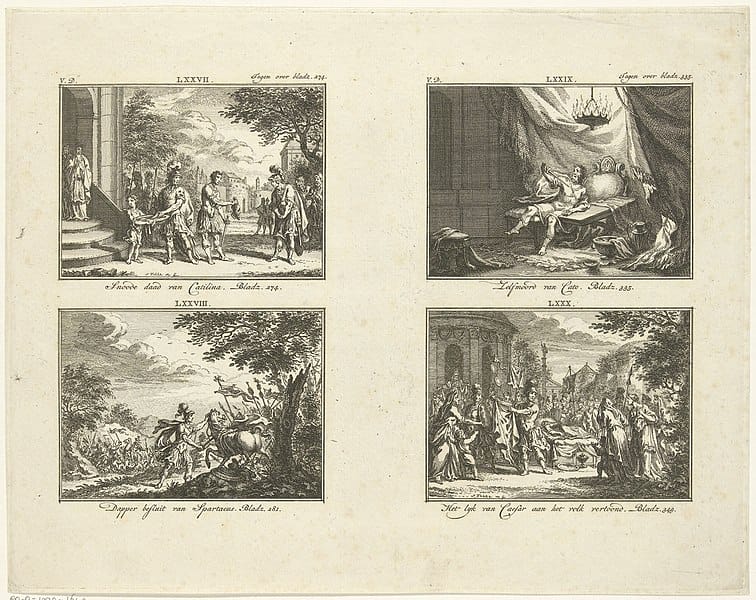
His life left an indelible mark on Roman history. His commitment to traditional Roman values and his steadfast opposition to the increasing influence of figures such as Julius Caesar represented the decline of the Republic’s strongest opposition to autocracy. His life and actions positioned him as a symbol of republican virtue and opposition to dictatorship. His influence extended beyond politics to philosophy, where he had a significant impact on Stoic philosophy.
Cato the Younger was held in high esteem during his lifetime and by later generations for his firm commitment to his principles and his strong advocacy for the Roman Republic. As Cato believed, his enduring legacy lies in his unwavering dedication to the principles and traditions of the Republic, which continue to inspire and guide political thought and action. In fact, when Cato the Younger spoke, his words resonated with the values of the Roman Republic.
His death, seen as a stoic conclusion in line with the principles he had adhered to throughout his life, was a testament to his commitment to the Republic and its traditions. Despite his death, his legacy lived on, influencing the course of Roman history and shaping the ideals and values of subsequent generations.
Political Legacy
His political stance, which emphasized the preservation of old Roman values and the defense of the traditional prerogatives of the aristocratic elite, played a significant role in the collapse of the Roman Republic. He utilized his political influence to oppose tyranny by actively opposing the rise of Julius Caesar, opposing Caesar’s measures and policies, and defending the Roman Republic and its ideals.
Cato’s political philosophy, rooted in Stoicism, influenced his confrontational approach towards Caesar and his stance on corruption and injustice. His commitment to moral principles and embodiment of Roman traditions had a notable influence on his contemporaries and has endured in contemporary debates on a range of policy matters, including fiscal accountability and criminal justice reform.
Stoic Legacy
His commitment to Stoicism and its moral and political doctrines profoundly impacted the philosophical landscape of Rome. He presented Stoic principles such as asceticism, a dedication to justice and opposition to corruption, and a profound commitment to philosophy in both his political and personal endeavors.
His political decisions and actions were significantly shaped by the Stoic principles of personal virtue, ethics, and emotional regulation. His dedication to justice and opposition to corruption, as well as his commitment to the principles and traditions of the Republic, remain a testament to his influence and legacy.
Reception and Influence
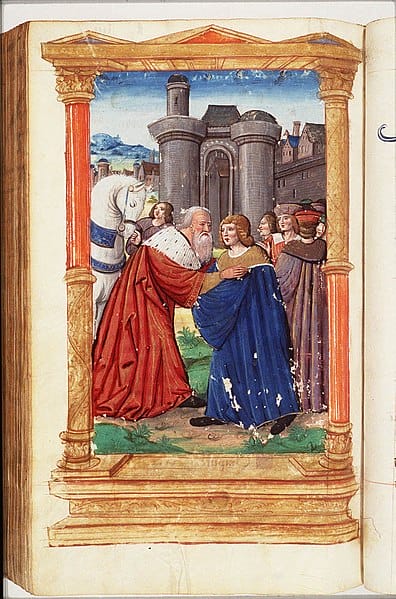
His contemporaries received Cato’s life and actions with admiration and respect. Notably, Cicero and Brutus, in their eulogies, praised his character and criticized his opposition. Cicero’s eulogy emphasized the truth about Cato the Younger, presenting it with brevity and restraint to honor his legacy. Brutus, on the other hand, underscored Cato’s distinguished career, his principled resistance to Caesar, and the nobility of his self-sacrifice.
In contrast, Julius Caesar wrote an ‘Anticato’ in response to the praise of Cato. This was a polemic aimed at discrediting Cato by alluding to his drinking habits and criticizing his public actions. Despite Caesar’s efforts, Cato’s influence and legacy endured, influencing the course of Roman history and shaping the ideals and values of subsequent generations.
Summary
Cato the Younger’s life was marked by unwavering dedication to the Roman Republic and its traditional values. From his early upbringing and philosophical training to his political ascent and confrontations with Julius Caesar, Cato embodied the principles and values of the Republic. His commitment to Stoicism, his uncompromising opposition to tyranny, and his unyielding resistance against the rising influence of figures such as Julius Caesar positioned him as a symbol of Republican virtue and opposition to dictatorship. His enduring legacy, both political and philosophical, continues to inspire and guide subsequent generations, ensuring that the spirit of Cato the Younger lives on.
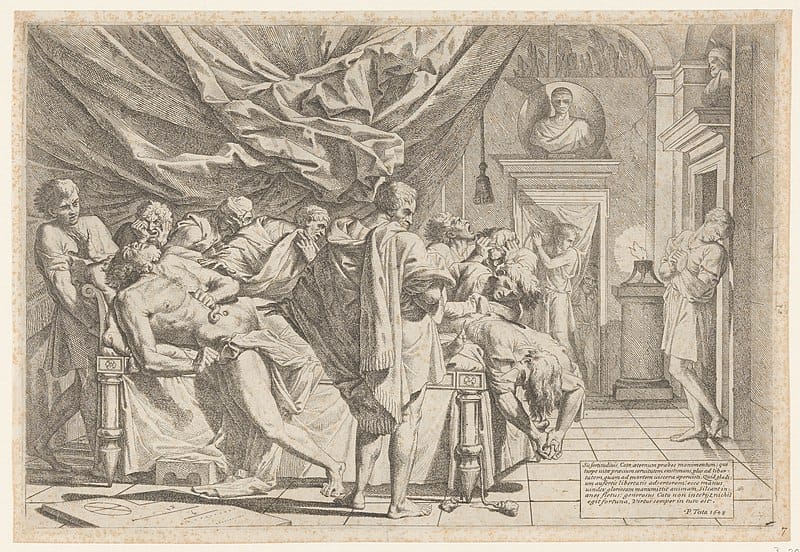
People Also Ask:
Was Cato the Younger a Stoic?
Yes, Cato the Younger was a follower of Stoicism, known for his adherence to philosophy and his influential role as a Stoic practitioner and orator in his time. He led by example and garnered a powerful political following through his commitment to Stoic principles.
Was Cato good or bad?
Cato the Younger was remembered for his staunch opposition to Julius Caesar and his support of the Roman Republic, although some of his actions were considered controversial and even harmful.
What was the famous saying of Cato?
Cato’s famous saying was, “I would much rather have men ask why I have no statue than why I have one.” This quote reflects his perspective on legacy and reputation.
Why was Cato so important?
Cato the Elder, also known as Cato the Censor, was important for his conservatism and opposition to Hellenization, as well as being the first writer to compose a history of Rome in Latin.
What were the primary factors contributing to Cato the Younger’s resistance to Julius Caesar?
Cato the Younger resisted Julius Caesar because he viewed Caesar as a threat to the Roman Republic and feared that Caesar’s ambition would lead to tyranny, leading him to promote a strategy of confrontation and brinksmanship with Caesar.
Hello, my name is Vladimir, and I am a part of the Roman-empire writing team.
I am a historian, and history is an integral part of my life.
To be honest, while I was in school, I didn’t like history so how did I end up studying it? Well, for that, I have to thank history-based strategy PC games. Thank you so much, Europa Universalis IV, and thank you, Medieval Total War.
Since games made me fall in love with history, I completed bachelor studies at Filozofski Fakultet Niš, a part of the University of Niš. My bachelor’s thesis was about Julis Caesar. Soon, I completed my master’s studies at the same university.
For years now, I have been working as a teacher in a local elementary school, but my passion for writing isn’t fulfilled, so I decided to pursue that ambition online. There were a few gigs, but most of them were not history-related.
Then I stumbled upon roman-empire.com, and now I am a part of something bigger. No, I am not a part of the ancient Roman Empire but of a creative writing team where I have the freedom to write about whatever I want. Yes, even about Star Wars. Stay tuned for that.
Anyway, I am better at writing about Rome than writing about me. But if you would like to contact me for any reason, you can do it at contact@roman-empire.net. Except for negative reviews, of course. 😀
Kind regards,
Vladimir
